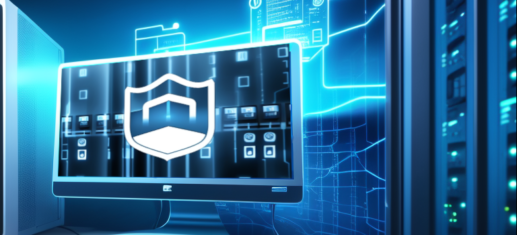Alternative to Windows Security
Do we need a third party antivirus solution?
Whether the built-in security software in Windows is sufficient or if it’s better to purchase commercial security software like Dr.Web Security Suite depends on various factors, including your specific needs, online behavior, and risk tolerance. Let’s examine both options in detail:
Built-in Windows Security:
- Windows Defender: Windows includes a built-in antivirus and anti-malware tool called Windows Defender. Over the years, it has improved significantly and provides basic protection against viruses, malware, and other common threats.
- Firewall: Windows also includes a firewall that helps protect your computer from network-based threats by monitoring and controlling incoming and outgoing traffic.
- Windows Updates: Regularly updating your Windows operating system is crucial for security. Microsoft releases security patches and updates to address vulnerabilities that could be exploited by cyberattacks.
Advantages of Built-in Security:
- Cost: It’s included with your Windows operating system, so there’s no additional cost.
- Integration: It’s tightly integrated with the OS, leading to better performance and less interference with other software.
- Regular Updates: Microsoft continuously updates and improves Windows Defender, ensuring that it stays up-to-date with the latest threats.
Limitations of Built-in Security:
- Basic Protection: While Windows Defender is effective against many common threats, it may not offer the advanced features and protection levels of commercial antivirus suites.
- Lack of Additional Features: Built-in security typically lacks extras like a VPN, password manager, parental controls, and other security enhancements offered by commercial solutions.
- Target for Attack: Since Windows Defender is used by a large number of Windows users, it can be a target for cybercriminals who design malware to specifically evade it.
Commercial Security Software (e.g., Dr.Web Security Suite):
- Advanced Protection: Commercial security suites often offer more comprehensive protection against a wider range of threats, including advanced malware, zero-day vulnerabilities, and phishing attacks.
- Additional Features: They come with extra features like firewall management, VPN services, identity theft protection, and parental controls, which can be beneficial for families or users with specific needs.
- Technical Support: Commercial software often includes customer support, which can be valuable if you encounter issues or need assistance.
Advantages of Commercial Security Software:
- Advanced Threat Protection: Commercial software usually provides more robust protection, including heuristic analysis and behavior-based detection.
- Additional Features: If you need features like a VPN, password manager, or advanced firewall controls, commercial security suites are a better choice.
- Customer Support: You have access to professional customer support, which can be crucial if you run into security issues.
Limitations of Commercial Security Software:
- Cost: You’ll need to pay for a subscription, which can add to your overall expenses.
- Performance Impact: Some commercial security suites can consume more system resources, potentially slowing down your computer.
- Potential Compatibility Issues: Commercial software may conflict with certain applications or hardware, leading to compatibility issues.
Conclusion:
The decision between using the built-in Windows security or purchasing commercial security software like Dr.Web Security Suite depends on your specific requirements and budget. If you have minimal security needs, Windows Defender may suffice. However, if you require advanced protection, additional features, or peace of mind, investing in commercial security software can be a wise choice. Ultimately, regardless of the software you choose, maintaining a proactive approach to security by keeping your system and software updated, practicing safe online habits, and regularly backing up your data is essential for a robust defense against cyber threats.



